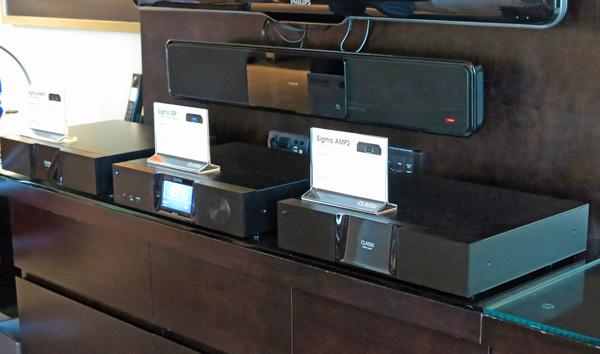| Columns Retired Columns & Blogs |
About time you guys realise we are not all made of $$$$$ but have a passion for good recorded play back music.
Good step to take , hopping others will follow.

Nauber pointed to the new Sigma SSP ($5000), which is "really designed as a stereo preamp for someone who has a TV between their speakers. It's also perfect for a family room customer, and for those whose number of speakers is limited to 7.1." Among its features: asynchronous USB, and phono and streaming options.
Next up, the Sigma AMP2 200Wpc stereo amp ($3500) and AMP5 200Wpc 5-channel amp ($5000). Boasting Classé's own class-D modules, which took three years to develop, the amps are over 90% efficient, small relative to the amount of power they generate, and run pretty cool. Check out the white paper on the Classé website.
"We've solved the problem of deadband time," said Nauber. "As class-D switches from plus to minus transistors, there's a time when they're both off. (If they're both on simultaneously, the amp will explode.) Even small amounts of deadband time result in high distortion. Not only have we addressed that, but we've also taken advantage of new parts, including exclusive use for two years of new driver transistors from International Rectifier, that make class-D sound better."
Better sound. Very Classé after all.

About time you guys realise we are not all made of $$$$$ but have a passion for good recorded play back music.
Good step to take , hopping others will follow.

Does this mean that class-D amps not employing their new circuitry are ticking time bombs? If so, then there are a lot of potential disasters out there waiting to happen. Someone call the FTC. Better yet, call the bomb squad!

Dead band time prevents a dead short in the output devices, and all class D amplifiers use dead band time for this reason. Classé Sigma amplifiers just use considerably less, which is part of the reason why they sound great.
Patrick Butler
B&W Group North America